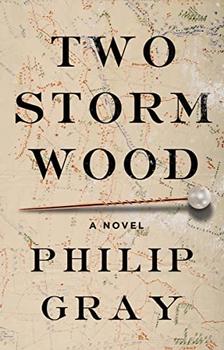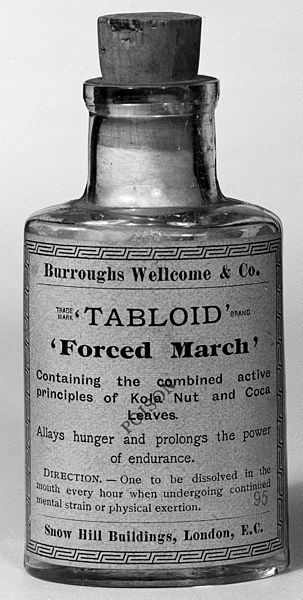Summary | Excerpt | Reviews | Beyond the Book | Read-Alikes | Genres & Themes | Author Bio

A Novel
by Philip GrayThis article relates to Two Storm Wood
 In his historical novel Two Storm Wood, Philip Gray portrays the reality of World War I mostly from the perspective of a young British officer, showing everything from the gruesome and harrowing details of war to lesser-known facts of everyday life for those serving in it. This reality includes substance use and abuse among troops. Drugs that are now heavily controlled, notably cocaine, were not only sought after by soldiers during the war but even encouraged and distributed by militaries, including the British Army.
In his historical novel Two Storm Wood, Philip Gray portrays the reality of World War I mostly from the perspective of a young British officer, showing everything from the gruesome and harrowing details of war to lesser-known facts of everyday life for those serving in it. This reality includes substance use and abuse among troops. Drugs that are now heavily controlled, notably cocaine, were not only sought after by soldiers during the war but even encouraged and distributed by militaries, including the British Army.
In general, the intersection between mind-altering substances and war is an age-old phenomenon. According to Lukasz Kamienski, author of Shooting Up: A History of Drugs in Warfare, "Throughout history, intoxicants were an important part of the war experience. The First World War was by no means an exception in that respect: its main 'war drugs' were alcohol (mostly beer, brandy, rum, schnapps, wine, and vodka), morphine, and cocaine. These were both 'prescribed' by military authorities and 'self-prescribed' by soldiers."
During the war, the British company Burroughs, Wellcome & Co. marketed a cocaine product to soldiers (and to their friends and loved ones as a practical gift idea) called Forced March, which was sold under the Tabloid brand name. The product came in the form of tablets containing both cocaine from coca leaves and cola nut extract (a source of caffeine), and was suggested to be a performance enhancer that allowed soldiers to push their normal physical and mental limitations. It was sold in a small glass bottle, with its label stating that it "Allays hunger and prolongs the power of endurance." The directions instructed one to dissolve a tablet in the mouth every hour "when undergoing continued mental strain or physical exertion."
Cocaine is made from the leaves of the coca plant (as noted on the Forced March product packaging), which has been cultivated in South America for centuries. The substance was first isolated from coca leaves by the German chemist Albert Nieman in the mid-19th century. Since then, it has been used as a recreational drug, a medical aid (as a surgical anesthetic) and for the kind of enhancement purposes that Burroughs, Wellcome & Co. marketed it. As is now somewhat common knowledge, cocaine was also an ingredient in the original 1886 recipe for the American beverage Coca-Cola, the name of which was drawn from the sources of the same two main ingredients in Forced March: cocaine from the coca leaf and caffeine from the cola nut.
Cocaine is a powerful stimulant, meaning that it raises levels of dopamine in the brain, increasing feelings of energy and alertness, which explains why it could have helped soldiers' endurance and been useful for fighting fatigue. It can also enhance the senses, as well as suppress appetite, as promised by the makers of Forced March. These properties, aside from having useful applications, can produce pleasurable sensations — with the downside being that the drug is very addictive and can lead to serious health problems, including seizures, heart disease and lung damage.
Despite the relative availability and acceptability of cocaine products among the British military and general public during WWI, the drug was criminalized shortly after the war ended, under the Dangerous Drugs Act of 1920.
Forced March cocaine product in glass bottle, courtesy of Wellcome Collection (CC BY 4.0)
Filed under People, Eras & Events
![]() This article relates to Two Storm Wood.
It first ran in the April 6, 2022
issue of BookBrowse Recommends.
This article relates to Two Storm Wood.
It first ran in the April 6, 2022
issue of BookBrowse Recommends.




Fanaticism consists in redoubling your effort when you have forgotten your aim
Click Here to find out who said this, as well as discovering other famous literary quotes!
Your guide toexceptional books
BookBrowse seeks out and recommends the best in contemporary fiction and nonfiction—books that not only engage and entertain but also deepen our understanding of ourselves and the world around us.